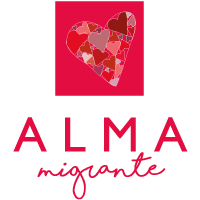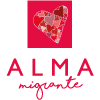KNOW YOUR RIGHTS
By: Geovanna Davalos Alvarez
Social integration and migration
The 2030 Sustainable Development Agenda states that migration is a powerful driver of development, as it provides significant benefits in the form of capabilities, strengthening the workforce, investment, and cultural diversity (International Organization for Migration, 2022). Although at present, the free flow of capital, services, and merchandise have been increasing due to globalization, the elimination of multiple barriers to guarantee the free movement of people is far from reality.
It is clear that the migratory phenomenon has an implicit process of cultural mixing and exchange so when we speak of social integration in this context, we are not referring to the imposition of one culture over the other, but to the ability to adapt and develop a series of necessary practices so that migrants and their needs are taken into account by the society in which they live.
This process necessarily involves various areas, among which the public – social sphere stands out, so that we understand that integration occurs through a process, in which people in a context of mobility, either individually or collectively, are accepted as part of a society, in such a way that it implies a bidirectional adaptation, that is, both of migrants and of those who live in their context, in order to ensure the recognition of people, their access to different types of services , and therefore, to the full exercise of their rights.
Speaking of an integration process requires an arduous process of reflection, which leads us to question, point out and subsequently modify a series of racialized practices and beliefs that have been made invisible and that have been perpetuating a series of discriminatory attitudes and xenophobes that today have a direct impact on the lives of the thousands of migrants who inhabit the city. Making them visible will lead to a better understanding of the barriers that migrant populations face in securing employment, housing, health care, education, and other basic needs, as well as the causes that generate them.
It is a long-term process, which involves analyzing, in addition to its own, the way in which this impacts society. There is no doubt that the challenge requires us to act immediately, since the full incorporation of people in the context of human mobility into our society, coupled with an in-depth analysis of the legal and structural framework, will facilitate the correct design and subsequent implementation of multiple policies. of integration that addresses these causes.
There are options, there are some that have already been developed in the cultural aspect, such as the “Frontier Views” festival that the Espacio Migrante team has organized since 2014 and with which it is intended to weave community, unite the migrant community with the local and thereby enrich the knowledge of the local and migrant population in their integration into the city (Chávez and Girón, 2021).
In addition to some proposals that organized civil society has been promoting, such as the link between businessmen and people in a context of mobility, to favor the development of relationships that allow the creation of bonds of trust that facilitate the access of migrants to more and better job opportunities, in order to promote migration regulation that allows them to obtain temporary residences and thus access the full exercise of their rights with a view to social integration in the medium and long term.
This can be translated into a mutual adaptation, which maintains and enriches what is unique and what is new, since, only in this common process, the social tensions that arise from the difference and the interest in discarding the “other” will be avoided. In turn, it can crack our rule of law.
Bibliography
Chavez, A. and. (2021). VIII Border Looks Cultural Festival.
Bel Adell, C. (1994). The social integration of immigrants and non-governmental organizations. Geography Papers, 119 – 132.
International Organization for Migration. (June 23, 2022). International organization for migrations. Retrieved from https://www.iom.int/en/migration-sustainable-development-and-the-2030-agenda
© Copyright 2020 Alma Migrante

